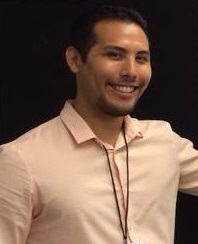
Initiative, Self-Sufficiency, and Perseverance
 Initiative, self-sufficiency and perseverance; key ingredients that admissions officers look for in graduate, medical and law school applicants. Straight A’s no longer set one student above the rest. That is why many undergraduates choose to join research labs.
Initiative, self-sufficiency and perseverance; key ingredients that admissions officers look for in graduate, medical and law school applicants. Straight A’s no longer set one student above the rest. That is why many undergraduates choose to join research labs.
I joined Dr. Barchard’s lab so that I could develop the skills necessary to succeed in graduate school. When I first joined the lab, I acquired transferrable skills that are beneficial for a variety of academic pursuits. These skills include reading and understanding abstruse jargon in research articles, interacting with human subjects while administering studies to collect data, analyzing data using statistical software, and writing APA-style content for research posters. After establishing those skills, I took the initiative to take on an advanced project. My job was to learn Visual Basic and make substantial improvements to a Microsoft Excel based program created by Dr. Barchard: The Poka Yoke Data Entry System.
Poka Yoke is designed to compare data that users enter multiple times to identify discrepancies. Learning the programming language was the easy part. The hard part was the problem solving. There were many times that the program would not behave the way I wanted. Unfortunately, most programming problems are unique and cannot be “Googled” for a solution. Instead, I had to isolate the code, test it, and repeat with the next section until I located the bug. Most of the time, I had to translate the code into English to try to understand what logical rules were being disobeyed.
At one point, I did not think I would be able to finish the project. I had deadlines to meet and every time I fixed one problem, two more problems would arise. Frustrated but focused, I soldiered on for two years until I completed the project. Instead of giving up, I dedicated whatever additional time I needed to complete it, including an entire winter break. By the time I finished my work on Poka Yoke, I had learned both to program and to problem solve. Both of these require initiative, self-sufficiency, and perseverance.
You may be wondering how these characteristics help with graduate school. Well, here’s a little secret. When I first applied to graduate school, I was rejected by every program I applied to. I did not even get invited to an interview. I was in disbelief because my GPA was near perfect, just like most of yours. That’s when I realized students cannot rely exclusively on academic performance anymore. I took this opportunity to make myself more appealing by acquiring more skills and knowledge. I worked on more independent research projects and took advanced courses that were not even required for me to graduate, including Calculus 3, an informal prerequisite to my main research interest. I also kept in touch with directors of graduate programs that I applied to and even Skyped them to chat about their research. Finally, I took the time (and money) to attend Kaplan courses, which improved my GRE scores. I applied to the graduate schools again and this time not only did I get invited to interviews, including with Brown University, but I also got accepted to multiple programs.
Quantitatively, there was not much difference from my first application. What the admissions officers saw was my initiative, self-sufficiency and perseverance. If you have those characteristics, make sure to show them in your application. If you don’t, now is the time to develop them, whether it’s in the lab or any other area of your life. By joining a lab, I know you are on the right track, and by the time you graduate, I am sure you will have the skills necessary to triumph over any obstacle in life.
 Ernesto Bedoy is a recent UNLV graduate. His major was in Psychology with a double minor in Biology and Neuroscience. While at UNLV he volunteered in research labs with Dr. Barchard, Dr. Kinney and Dr. Hyman. He just began his PhD training in Neuroscience at the University of Pittsburgh and aspires to develop and test brain-computer interfaces in the future.
Ernesto Bedoy is a recent UNLV graduate. His major was in Psychology with a double minor in Biology and Neuroscience. While at UNLV he volunteered in research labs with Dr. Barchard, Dr. Kinney and Dr. Hyman. He just began his PhD training in Neuroscience at the University of Pittsburgh and aspires to develop and test brain-computer interfaces in the future.